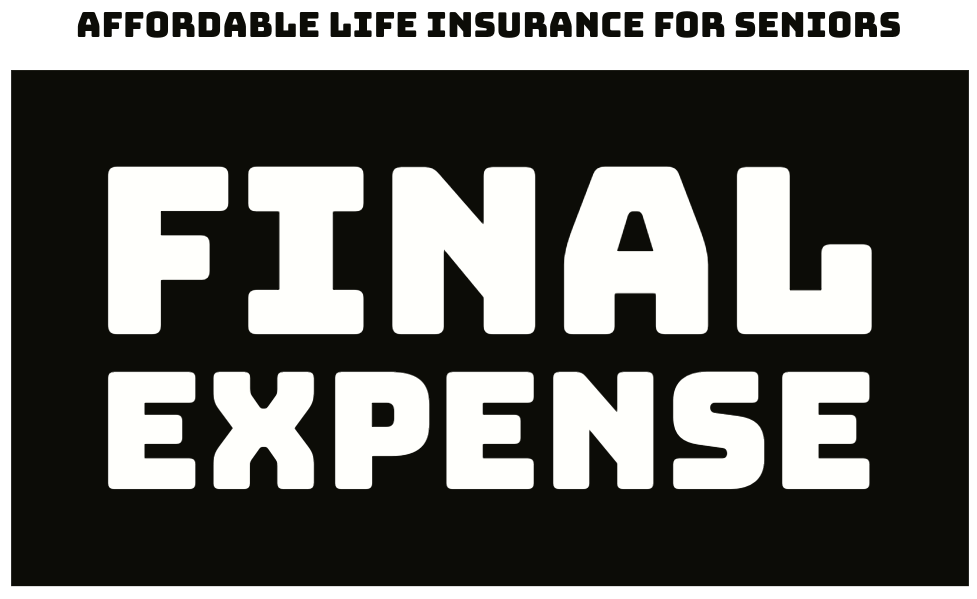Funerals in the U.S. typically cost around $9,000 for a traditional service and $6,280 for cremation with a service. These prices vary based on location, service choices, and additional options. In this guide, we’ll break down how much do funerals cost to help you understand what to expect.
Key Takeaways
-
The average cost of a traditional funeral in the U.S. is approximately $9,000, while cremation averages around $6,280, with direct cremation being the most economical option at about $2,195.
-
Funeral costs vary significantly by state; Hawaii has the highest average funeral costs, while Ohio offers a wider range of prices based on the type of service chosen.
-
Understanding and comparing funeral home fees, which include mandatory basic service fees and optional additional services, is essential for budget management and avoiding unexpected expenses.
Understanding Funeral Costs
Funeral costs encompass a variety of expenses, including basic service fees, charges for additional services and merchandise, and cash advances. These costs can quickly add up, leading to a significant financial burden for families already dealing with emotional stress. Proper planning can help mitigate these expenses and prepare you for the financial implications of honoring a loved one’s final wishes.
The factors contributing to funeral expenses include service fees, merchandise like caskets, and any additional services requested. Knowing these costs and planning accordingly can alleviate the financial pressure on surviving family members.
This guide provides a summary of average funeral costs, helping you make informed decisions during a challenging time.
Average Funeral Costs in the U.S.
In the United States, the average funeral cost of a traditional funeral is approximately $9,000. This price typically includes services such as the funeral ceremony, viewing, and burial. However, these costs can increase significantly with the addition of items like a burial vault, which can raise the total expense to nearly $10,000. Funeral homes generally charge a basic service fee, ranging from $2,000 to $2,500, which covers essential services such as planning and coordination.
For those considering cremation, the average cost that includes a funeral service and viewing is around $6,280. Full-service cremation in some areas can exceed $5,000, making it a more affordable option compared to traditional burials. Direct cremation, which is the simplest and most cost-effective form, averages about $2,195 in 2025. Meanwhile, direct burial, which involves burial without a formal funeral service, costs approximately $5,126.
These averages provide a general idea of the financial commitment involved in different types of funeral arrangements. Understanding these costs can help you plan more effectively and ensure that you are prepared for the financial realities of a loved one’s passing.
State-by-State Funeral Cost Breakdown
Funeral costs can vary significantly from state to state, influenced by factors such as location, the type of service chosen, and local regulations. Hawaii, for instance, is noted as the state with the highest average funeral costs in the country. This can be attributed to the higher cost of living and the logistical challenges associated with island geography.
In contrast, states like Ohio offer a more diverse range of costs. The estimated full-service cost range of a burial in Ohio is between $2,800 to $10,000, with the average cost of final expenses around $8,000. Cremation in Ohio is also relatively affordable, averaging about $5,000.
Being aware of these regional differences allows for more informed decisions based on your location and specific needs.
Funeral Home Fees Explained

Funeral home fees are a significant component of overall funeral costs. These fees can be broadly categorized into basic services fees and additional service fees. The basic services fee is mandatory and covers essential services common to all funerals. This includes arrangements like planning, securing permits, preparing notices, sheltering remains, and coordinating arrangements.
Additional service fees, on the other hand, cover optional services that you may choose to include in the funeral. These can range from embalming and refrigeration to the use of funeral home facilities and staff for the funeral ceremony. Knowing these fees helps you budget more accurately and avoid unexpected expenses.
Basic Services Fee
The basic services fee is a mandatory charge that varies among funeral homes. This fee generally includes essential tasks such as securing necessary permits, preparing notices, and housing the remains. The fee reflects the range of services provided by the funeral home and is a foundational component of the overall cost.
Understanding what the basic services fee covers helps you appreciate the value of the services provided and ensures you are not overpaying for essential tasks. This fee is an integral part of funeral pricing and helps set the stage for other costs you may incur.
Additional Service Fees
Additional service fees cover a variety of optional services that can enhance the funeral experience but are not legally required. For instance, embalming is one such service that can be opted out of in Ohio, potentially saving families hundreds of dollars. Refrigeration may be necessary for bodies intended for future viewing if there is a delay before burial or cremation.
Other optional services include the use of funeral home facilities and staff for the funeral or memorial service, which can add to the overall cost. Funeral homes may also charge for cash advances, which are costs incurred for goods and services provided by third parties.
Awareness of these additional fees allows for informed decisions and better budget management.
Burial vs. Cremation Costs

When planning a funeral, one of the most significant decisions to make is whether to opt for burial or cremation. The costs associated with each option can vary widely, influencing your choice based on budget and personal preferences. Traditional burials generally entail higher costs due to the need for a casket, burial vault, and a burial plot. In contrast, cremation is often a more economical choice, with costs varying based on the services included.
Immediate burial or direct cremation can provide cost-effective options for those looking to minimize expenses while still honoring their loved ones. These options typically involve fewer services and lower overall costs, making them attractive for those on a budget.
Traditional Burial Costs
The average cost of a traditional funeral with burial in 2025 is approximately $9,995. This includes the funeral ceremony, viewing, and burial services. However, costs can vary significantly based on various factors, such as the style of service, choice of funeral home, and transportation costs. For example, in Ohio, the complete service burial can range from $2,800 to $10,000.
One of the most variable costs in a traditional burial is the casket. Caskets vary widely in price, with basic options starting around $900 and some custom models reaching up to $65,000. The median cost of a burial with a vault and funeral is approximately $9,420. While burial vaults or grave liners are not legally required by state laws, they are often used to prevent the grave from sinking.
Additional costs for a burial can include the burial plot, which can vary based on the cemetery’s location and policies. Knowing these costs helps plan a traditional burial that aligns with your budget and final wishes.
Cremation Costs
Cremation costs are generally lower than those for traditional burials, making cremation a popular choice for many families. The average cost of cremation in 2025 is approximately $6,280. This includes a funeral service and viewing. For those seeking a more economical option, direct cremation—which involves no formal funeral service—averages about $1,924.
In Ohio, the cost of full-service cremation can start at $5,000 or more. Cremation accounts for 25% of all funerals in Ohio, reflecting its growing popularity as a cost-effective alternative to traditional burial.
Knowing the different cremation options and their costs helps you make an informed decision that suits your budget and preferences.
Other Funeral Expenses

Beyond the basic services and burial or cremation costs, there are other expenses to consider when planning a funeral. These can include flowers, obituary notices, and memorial services. Each of these additional expenses can add up, contributing to the overall cost of the funeral.
In states like California, core expenses such as venue rental, catering, and personalized services can significantly increase the total cost of the funeral. Prioritizing these expenses based on personal needs and preferences can help manage the financial burden more effectively.
Memorial Service Costs
Memorial service costs can vary significantly depending on multiple factors, including venue selection and catering options. For example, the cost of a cremation urn can range from approximately $280 to over $5,000, depending on the material and design. Floral arrangements also vary widely, starting around $50 for simple bouquets and reaching thousands for elaborate displays.
Obituary publication costs depend on factors such as length and placement, with charges varying for print versus online publications. Knowing these costs helps align decisions with your budget and memorial service preferences.
Legal and Administrative Costs
Legal and administrative costs are another essential aspect of funeral expenses. In many regions, obtaining death certificates and necessary permits is a crucial part of the legal process after a death. These documents are often required for various legal and financial matters, such as settling estates and claiming life insurance policies.
The costs related to obtaining death certificates and necessary permits can vary based on local regulations. Factors such as state laws and specific local government fees can influence the total cost of these legal documents. Awareness of these administrative costs aids in accurate planning and avoiding unexpected expenses.
The Funeral Rule and Your Rights
The Funeral Rule, established by the Federal Trade Commission, aims to protect consumers during funeral arrangements, preventing exploitation from predatory providers. Under this rule, consumers are entitled to receive a detailed itemization of costs, allowing them to select specific goods and services that best meet their needs. Funeral providers must disclose these costs and provide price information over the phone or through a General Price List upon request.
This transparency helps ensure that families are not overcharged or misled about the preservation qualities of embalming or caskets. Understanding your rights under the Funeral Rule can empower you to make informed decisions and avoid unnecessary expenses.
Awareness of these protections helps navigate the funeral planning process with greater confidence and clarity.
Tips for Reducing Funeral Costs

Reducing funeral costs is possible with careful planning and informed decisions. One useful tool is a funeral cost calculator, which can help you budget for various expenses. Additionally, it’s important to be aware of cash advances, which can include costs for flowers, obituary notices, clergy services, and musicians. These are often added to the total funeral bill and can be negotiated or adjusted.
Another tip is to use the official FTC funeral pricing checklist to price shop or compare options for funeral services. If a funeral home charges an unlisted fee, don’t hesitate to ask what it is and why it’s there to avoid unexpected expenses.
Using these strategies helps manage costs effectively and ensures you are not overspending.
Pre-Planning and Pre-Payment Options
Pre-planning and pre-payment options are effective ways to manage funeral expenses and alleviate financial burdens on your family. Many individuals opt for prepaid funeral plans, which can include arrangements for burial or cremation, caskets, burial plots, and additional services such as flowers and obituaries. A prepaid funeral trust allows funds to be managed by a third-party trustee, ensuring they are used specifically for funeral costs.
Final expense insurance is another option designed to cover funeral costs and can provide death benefits for various uses, not just funeral expenses. The flexibility of final expense insurance allows beneficiaries to use the funds for any purpose, unlike most pre-need plans.
Including funeral costs in an overall retirement plan can also be a prudent way to manage end-of-life expenses without committing to prepaid plans.
Comparing Funeral Providers
Comparing funeral providers is essential to ensure you get the best deal for your needs. Prices can differ greatly among funeral homes, so shopping around can lead to significant savings. It’s beneficial to compare prices from various funeral homes to find the most cost-effective option that meets your requirements.
Some funeral homes may charge less for similar services, making it worthwhile to seek multiple quotes. Encouraging active comparison of a funeral provider ensures that you get the best deal possible and avoid unnecessary expenses.
Financial Assistance for Funeral Costs
Funeral expenses can place a substantial financial burden on grieving families. Fortunately, there are several options for financial assistance to help cover these costs. Prepaying for funeral arrangements can secure current prices and alleviate financial stress for family members during a difficult time. Funeral trust funds are a common method to set aside funds for future funeral costs.
Support from a trusted insurance agent can also be beneficial for families facing funeral costs. Assistance to offset end-of-life expenses may include state funds, FEMA, VA benefits, Social Security, and local programs. Understanding these options can help you manage funeral expenses more effectively and reduce the financial burden on your family.
Life Insurance and Final Expense Insurance
Life insurance and final expense insurance are valuable tools for covering funeral costs. Burial insurance, a type of life insurance, specifically covers final arrangements and related expenses. Final expense insurance is designed to assist families with burial and cremation costs, typically providing coverage amounts ranging from $10,000 to $15,000.
These insurance options can provide peace of mind, knowing that funds will be available to cover funeral expenses when needed. Securing a life insurance policy, funeral insurance, or final expense insurance ensures your family is not left with a financial burden during a challenging time.
Government and Non-Profit Assistance
Government assistance programs are available to help cover funeral costs for eligible individuals. Social Security, for example, provides a one-time death benefit of $255 to eligible survivors. State funds and local programs may also offer financial assistance to cover funeral costs for those who qualify.
Non-profit organizations can also provide support for funeral expenses. These programs can be a valuable resource for families facing financial difficulties, helping to ensure that funeral costs are manageable and that loved ones can be honored appropriately by the national funeral directors association.
Summary
Understanding funeral costs and planning ahead can significantly alleviate the financial and emotional burden on your family during a difficult time. By familiarizing yourself with the average costs, state-specific variations, and different types of funeral expenses, you can make informed decisions that align with your budget and final wishes. Whether you choose a traditional burial or cremation, knowing the associated costs and available options can help you plan effectively.
Taking advantage of pre-planning and pre-payment options, as well as comparing funeral providers, can further reduce costs and ensure that you are prepared. Additionally, exploring financial assistance options such as insurance and government programs can provide the necessary support to cover funeral expenses. By being proactive and informed, you can honor your loved ones without facing undue financial strain.
Frequently Asked Questions
What are the average costs of a traditional funeral and cremation in the U.S.?
The average cost of a traditional funeral in the U.S. is approximately $9,000, whereas a cremation with a funeral service and viewing costs about $6,280.
How can I reduce funeral costs?
To effectively reduce funeral costs, consider pre-planning and pre-paying for services, comparing prices from various providers, and utilizing a funeral cost calculator for budgeting. These steps can help ensure you remain financially prepared during a difficult time.
What is the Funeral Rule, and how does it protect me?
The Funeral Rule mandates that funeral homes provide clear pricing information and allows families to choose specific services and goods. This protects consumers by promoting informed decisions and preventing unnecessary charges.
Are there financial assistance options available for funeral costs?
Yes, there are several financial assistance options for funeral costs, including life insurance, final expense insurance, government programs like Social Security, and assistance from non-profit organizations. Exploring these options can help alleviate the financial burden during a difficult time.
What are some additional funeral expenses to consider?
Considering additional funeral expenses is crucial, as they can encompass flowers, obituary notices, memorial services, and legal costs like death certificates and permits. Planning for these will help ensure that all aspects of the funeral are appropriately managed.
